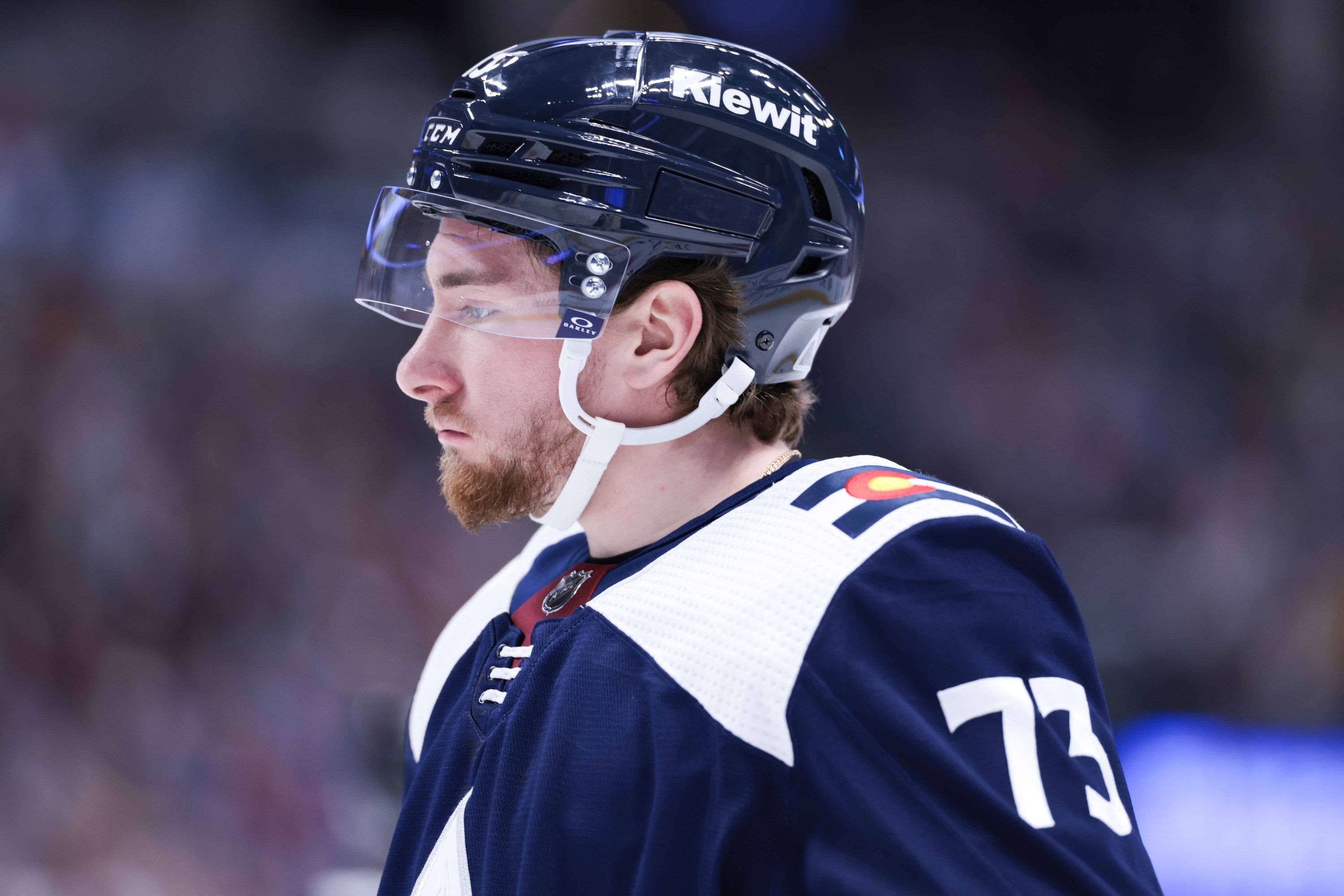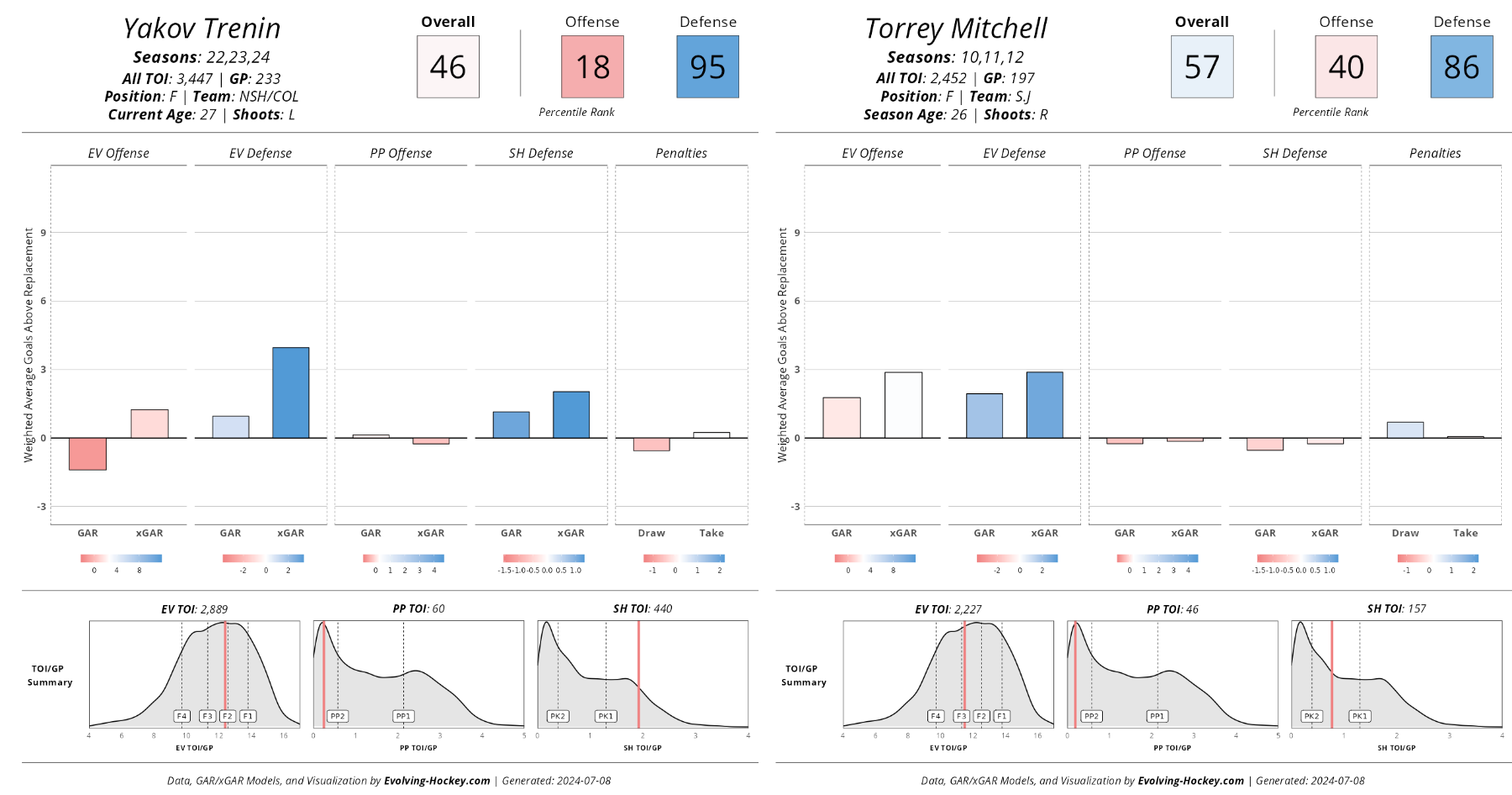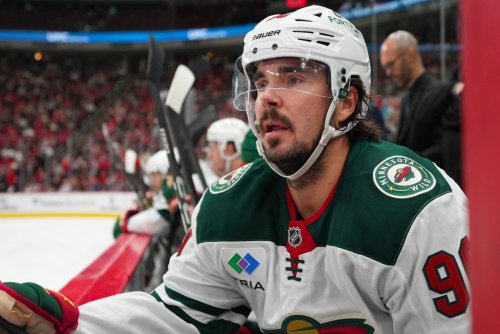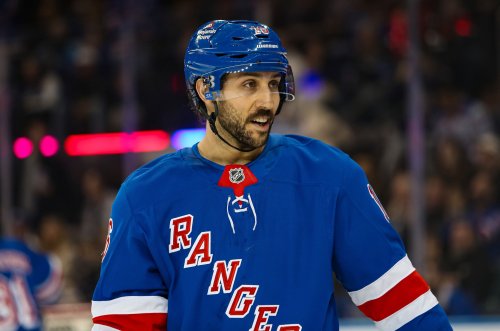
With the Minnesota Wild feeling a need to get bigger and tougher, they splurged to get some edge into their lineup. Taking the last of their limited flexibility, the Wild threw a four-year, $3.5 annual average value (AAV) deal to Yakov Trenin. Why? Because those are the kind of hard-to-play-against players you need to win in the NHL, particularly come playoff time.
"I think Yakov is, to be honest with you, an ideal third-line left winger," said Bill Guerin shortly after the signing. "For our team right now, we're in the process of learning how to win, of how to become a better team. Players like him bring different dimensions."
Oh, crud, we messed up there. That was Chuck Fletcher back in 2015, talking about why his team threw a multi-year contract at gritty winger Matt Cooke. Apologies for the mistake.
This is what Guerin said about Trenin on KFAN last Wednesday: "We want to get back to our identity, and being harder to play against. We needed size, we needed grit... We felt that was the primary area that we wanted to fix."
In spirit, this is nearly identical to what Fletcher said about Cooke in 2013. The former Wild general manager's thoughts weren't as recorded or well-preserved back in the early 2010s. However, it wouldn't be surprising if he said something similar about Torrey Mitchell, a speedy penalty killer the Wild signed for three years, $1.9 AAV in July 2012. Fletcher also might have cited getting harder to play against when he traded for Darroll Powe in June 2011, giving him a three-year, $1.067 million AAV deal a week later. Or perhaps when he signed Eric Nystrom to a three-year, $1.4 AAV contract back in July 2010.
Those guys were all meant to fill a similar need to what Trenin is expected to fill for Minnesota. They were all fast, all physical, and had utility on the penalty kill. Fletcher paid a relative premium to get those players in a Wild uniform, giving each player three years of term. Though the price tags from a decade ago might not be shocking, it should be mentioned that Trenin's percentage of the salary cap (3.98%) isn't terribly different from Cooke's (3.89%) or Mitchell's (3.17%).
Another thing these deals had in common: The Wild ended up regretting each of them. Nystrom lasted one season before Minnesota waived him, and the Dallas Stars claimed him. Powe played just eight games in his second season in Minnesota before the Wild flipped him in a minor move for Mike Rupp. Mitchell played uninspired hockey for two years before being a salary dump in the Matt Moulson trade. Cooke played the best of the bunch, but even he got bought out of the final year of his deal.
All in all, the Wild spent 12 years and $20.6 million on these four players and got a combined 386 games, 80 points, and 1.1 Standings Points Above Replacement for the bunch.
Credit to Fletcher, he eventually grew out of this habit of giving term to role players. After the Cooke signing, Fletcher gave just one more long-term deal to a third-or-fourth-line player, and his four-year pact with Marcus Foligno turned out to be an extremely solid contract. The lesson was learned.
For Bill Guerin's first few seasons, it didn't seem like he had to learn that lesson at all. He kept the cap hits lean whenever he signed a role player to term. Inking Foligno to a three-year deal worth $3.1 million per season was a tidy bit of business. Doing the same with Ryan Hartman, but with a $1.7 million cap hit was a home run. Giving Jordan Greenway a three-year, $3 million AAV didn't work out so well, but Guerin flipped him for a second-round pick the next season.
Then, as these cheap deals started expiring and the end of their cap hell entered their sight, there was a turn. Suddenly, Freddy Gaudreau got a five-year, $2.1 million deal, one the Wild would almost surely get out of if they could. Minnesota's cap situation meant he had to go cheap on his guys before, and as the money freed up, he rewarded "his guys" with long, expensive contracts to Foligno, Hartman, and Jake Middleton.
Those guys are supposed to be hard to play against. Still, Minnesota wasn't last year, especially as injuries or departures for Foligno, Brandon Duhaime, Connor Dewar, and Patrick Maroon piled up. "[The last games of the year against Minnesota] got a bit softer, and that's why I can help with that," Trenin said last week. Michael Russo was more blunt on his "Worst Seats in the House" podcast on July 2: "[The Wild] don't go after Trenin today if all the guys [Guerin] extended last year -- Gaudreau, Hartman, Foligno -- did their jobs last year."
It's a compressed version of the cycle Fletcher got caught in: Minnesota gives a player a longish-term contract that's supposed to make them harder to play against, it doesn't change the complexion of the team, and it requires them to make another similar deal in the future.
It might have been easy to flag Nystrom or Powe as bad investments on Day 1 had advanced stats been... well, advanced. But even through the lens of fancy stats, Mitchell should've been a fairly decent bet. At age 27, he posted solid underlying numbers over the three seasons leading up to free agency. He looks kind of like someone Wild fans might have recently gotten familiar with.

This isn't to say that Trenin will be a Mitchell-style flop. Instead, it's to highlight that Guerin is playing a dangerous game. When the upside is high, like with a top-pairing defenseman or top-six forward, it makes sense to roll the dice on a risky, longer-term deal. When the upside is Trenin being a good third-liner, it makes less sense. And again, we're not talking about Guerin only having one of these contracts on the books.
If Minnesota wanted a third-liner, they could have acquired one that was cheaper and arguably better. Danton Heinen is an example of someone who drives play on a third-line better than Trenin, and he only got a two-year, $2.25 million AAV deal with the Vancouver Canucks. Blake Lizotte fits the mold of a Trenin-like defender, and the Pittsburgh Penguins landed him for two years, $1.85 million AAV. Heck, they could have just kept Brandon Duhaime at the trade deadline and re-signed him, as he got that same two-year, $1.85 AAV deal with the Washington Capitals. We're talking basically half the price and term for a very similar player.
The State of Hockey's initial excitement with Guerin was that it represented a clean break from the Fletcher Era, especially after buying out Zach Parise and Ryan Suter, the two biggest symbols of that GM's tenure. It was a refreshing change. But seeing Guerin entering his sixth year at the helm possibly repeating a basic mistake of his predecessor should be concerning to Wild fans.
Think you could write a story like this? Hockey Wilderness wants you to develop your voice, find an audience, and we'll pay you to do it. Just fill out this form.
-
 3
3







Recommended Comments
Join the conversation
You can post now and register later. If you have an account, sign in now to post with your account.
Note: Your post will require moderator approval before it will be visible.